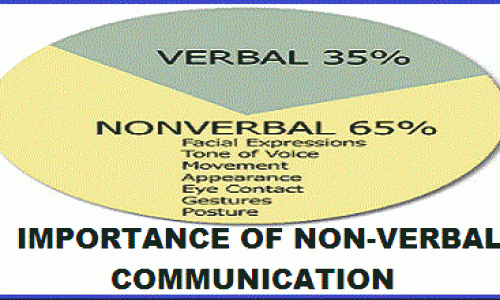With strong communication skills you can create more opportunities to accomplish your work mission.
Great communicators are viewed as successful individuals by co-workers. They become go-to people in an organisation because people equate efficacy with effective communication.
Great communicators contribute more in their organizations and receive more opportunities for promotion and recognition in their careers.
* Build the relationship first for successful communication. For even more successful communication, continue to build the relationship in all interactions in any setting over time. Goodwill has an accumulative effect.
When a great communicator approaches a co-worker, he takes the time to say, 'good morning' and 'how’s your day going?' 'Did you have a great weekend?' The effect of the relationship-building is incalculable. S/he sends the message, each time s/he communicates, that s/he cares about the receiver of the message.
* Your co-workers won’t listen if they don’t believe that you bring expertise to the table. Obtain the knowledge, insight, and forward thinking ability necessary to earn the respect of your colleagues for your industry or subject area expertise.
So, when you think about secrets of great communicators, subject matter expertise may head the list.
* Great communicators listen more than they speak. When they speak, they are frequently asking questions to draw out the knowledge and opinions of their co-workers.
When you allow yourself to listen, you often hear what is not being said. You can read between the spoken lines to understand the whole context of the other person’s thinking and needs.
* When a colleague is speaking, don’t spend the time preparing your response in your mind.
Instead, ask questions for clarification and to make certain that you thoroughly understand what the other person is communicating. Focus your mind on listening and understanding.
* When you check your understanding, you avoid miscommunication and misunderstanding. You circumvent hard feelings and protracted explanations about what your co-worker meant.
Use feedback loop to understand what your co-worker tries to communicate instead of ascribing meaning.
* Non-verbal communication is a powerful voice in any interaction. The voice tonality, body language, and facial expressions speak more loudly than the verbal communication (sending) or the actual words in many communication exchanges.
The youngest generation at work may not recognise the importance of talking with co-workers in person.
If you want information that is richer and deeper, and for discussion and exchange, you seek out your co-workers. Great communicators listen with their eyes.
* You want to watch for patterns (is this how your co-worker typically reacts) and inconsistencies (is this consistent with what you expect from this person).
You also want to watch for matching words, message, the tone of voice, and body language. If any of these verbal and non-verbal communication factors are inconsistent or sending different messages, communication failure is imminent.
Co-workers tend to listen to the non-verbal communication over the verbal.
* Pausing before communicating is an under-appreciated skill of great communicators.
If you are going to say anything critical or controversial, or if you're angry or emotional, wait 24 hours before you say it, send it, or post it to see if you still feel that way.
In this era of immediate and constant communication, thoughtful communication goes by the wayside. The instantaneous reaction is promoted and reinforced. It is often ineffective and demeaning.
Great communicators collect their thoughts and develop significant 'I messages.'
Courtesy: www.thebalance.com



